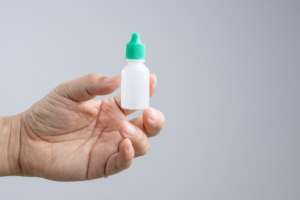
When sourcing Bimatoprost API for pharmaceutical or cosmetic formulations, compliance documentation is not just a formality — it’s a critical requirement that ensures safety, regulatory approval, and product integrity.
Whether you’re exporting to regulated markets like the US and Europe or supplying to semi-regulated countries, buyers must ensure every batch of Bimatoprost API is supported by proper COA, GMP certification, and DMF registration.
In this guide, we walk through the essential compliance documents buyers should verify before finalizing any deal with an API manufacturer or supplier.
1. Why API Compliance Matters
Bimatoprost is used in ophthalmic drugs and eyelash growth serums, both of which directly affect human eyes. Therefore, global health agencies (FDA, EMA, TGA) require that Bimatoprost API be manufactured and sourced under strict compliance standards.
Failing to secure proper documents can result in:
- Regulatory rejection of your finished formulation
- Failed batch approvals
- Legal liability and export complications
- Recalls or reputation damage
✅ That’s why sourcing compliant Bimatoprost API is essential for your supply chain.
Explore a leading manufacturer of APIs.
With over 10 years of expertise, we ensure GMP compliance and provide reliable, high-quality solutions.
2. Key Compliance Documents Every Buyer Must Request
Here’s a detailed checklist of what you should ask from any Bimatoprost API manufacturer:
A. Certificate of Analysis (CoA)
A CoA is a batch-specific quality assurance document that provides lab-tested results confirming the API complies with pharmacopeial standards.
What it should include:
- Batch/Lot number
- Assay (Purity % — usually 98–102%)
- Impurities and residual solvents
- Appearance
- Melting point
- Water content
- Retest or expiration date
- Analytical method used (USP/EP)
💡 Tip: Ensure the CoA is recent (not older than 3–6 months) and signed by QA.
B. Drug Master File (DMF) or ASMF/CEP
DMF is a confidential regulatory document filed with authorities like the US FDA or EMA. It contains the manufacturing process, controls, facilities, and stability data for the API.
- US buyers should ask for the Type II DMF number filed with the FDA
- European buyers should request ASMF or Certificate of Suitability (CEP)
- Other markets may require a Letter of Access or DMF open part
👉 Chemignition can provide DMF reference letter and technical packages for registered customers.
C. GMP Certification
A Good Manufacturing Practice (GMP) certificate confirms that the API was manufactured under stringent quality systems, facility hygiene, documentation, and validated processes.
Types of GMP recognized globally:
- WHO-GMP (World Health Organization)
- EU-GMP (European Union)
- US FDA GMP
- Local GMP authorities (like CDSCO India)
📢 For regulated markets like the US, EU, or Australia, EU-GMP or US FDA GMP is required.
3. Additional Documents Buyers May Need
Depending on your regulatory destination, request the following:
| Document | Purpose |
|---|---|
| Material Safety Data Sheet (MSDS) | Chemical safety and handling documentation |
| Impurity Profile | Confirms control of related substances |
| Residual Solvents Data | Compliance with ICH Q3C for solvents |
| Stability Data | Ensures retest period and shelf-life validity |
| TSE/BSE Declaration | For animal-free sourcing assurance |
| Packing List + Label Specs | Needed for regulatory import verification |
| Analytical Method Validation | Ensures testing methods are reproducible & reliable |
4. What Should Be on a Bimatoprost CoA?
| Test Parameter | Typical Specification |
|---|---|
| Description | White to off-white crystalline powder |
| Assay (as is basis) | 98.0% – 102.0% |
| Related Substances | ≤ 1.0% total impurities |
| Loss on Drying | ≤ 0.5% |
| Residual Solvents | Within ICH Q3C limits |
| Melting Point | 160 – 170°C |
| Heavy Metals | ≤ 10 ppm |
✔ Confirm that the CoA is aligned with USP/EP monographs (depending on your target market).
5. For Export Buyers: Customs & Regulatory Readiness
If you’re importing Bimatoprost API into regulated or semi-regulated countries, ensure your supplier provides:
- IEC Code (Indian Export License)
- Free Sale Certificate
- Commercial Invoice + Airway Bill
- GMP Certificate (official copy)
- CoA for each shipment
- Stability study report (on request)
6. Red Flags When Dealing with Non-Compliant Suppliers
Avoid suppliers who:
- Refuse to share CoA or GMP certificate
- Provide outdated documents
- Don’t know about DMF or stability data
- Offer unusually low prices without transparency
- Cannot show manufacturing site or audit history
🔒 These are signs of non-GMP, unreliable, or re-packaged API sources. Regulatory authorities will reject such products.
7. Chemignition Laboratory’s Compliance Guarantee
At Chemignition Laboratory, we are committed to regulatory-ready API supply with:
- WHO-GMP certified manufacturing
- Full CoA for every batch
- US DMF filing support (If available)
- MSDS, impurity, and validation data
- Global documentation for import & customs
- Technical team support for buyer audits
We supply Bimatoprost API to regulated and non-regulated markets across the US, EU, MENA, Asia, and LATAM.
8. Summary Checklist for Bimatoprost API Compliance
Before purchasing Bimatoprost API, make sure you get:
- Certificate of Analysis (CoA)
- GMP Certificate
- DMF or CEP/ASMF (if applicable)
- MSDS + Impurity Profile
- Stability Data & Retest Date
- Regulatory Documents for Customs (Export-ready)
Conclusion
Ensuring COA, DMF, and GMP compliance is non-negotiable when sourcing Bimatoprost API — especially for regulated markets. These documents guarantee product safety, support product registration, and reduce legal or logistical risks.
Working with a GMP-compliant, transparent, and audit-ready supplier like Chemignition makes the entire process smoother and safer for your business.
📢 Contact Chemignition Laboratory for GMP-certified Bimatoprost API today.
We provide full compliance documents, global shipping support, and customized batches for ophthalmic and cosmetic applications.
👉 Request a Quote or Sample Now
FAQs
What is a Certificate of Analysis (CoA) for Bimatoprost API?
A CoA is a batch-specific quality document that confirms Bimatoprost API meets pharmacopeial standards. It includes results for assay (purity), impurities, melting point, and more—ensuring the API is suitable for pharmaceutical or cosmetic use.
Is a Drug Master File (DMF) mandatory for importing Bimatoprost API?
A DMF is not always mandatory but is highly recommended—especially for regulated markets like the US or Europe. It contains confidential details about the API’s manufacturing process and quality control, helping with faster regulatory approvals.
What are the common red flags when sourcing non-compliant Bimatoprost API?
Warning signs include outdated or missing documents, lack of DMF or CoA, unusually low pricing, and inability to pass audits. Always verify that the supplier offers full documentation and audit support.
Can Chemignition provide full documentation for Bimatoprost API?
Yes. Chemignition Laboratory provides CoA, GMP certificate, MSDS, impurity profile, stability data, and DMF support for every Bimatoprost API order. We support both regulated and semi-regulated market requirements.



